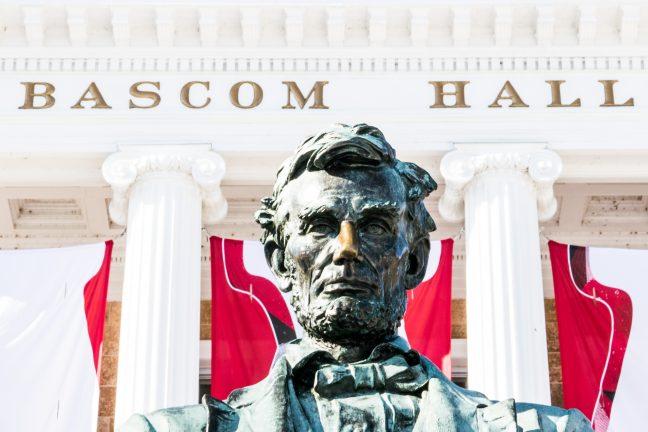Sexual assault and violence are undoubtedly issues that have become far too common at institutions of higher education. Amid the contemporary societal pressures of conformity, sexuality and the weight of the so-called normative “hook-up culture,” it can be both restraining and difficult for students to open up about and navigate events of criminal sexual offense.
The latest annual report of sexual assault of the University of Wisconsin Systems indicates that reporting of sexual assault has risen significantly from 2009-16. But it’s inaccurate to assume these numbers reflect the actual number of sexual assaults experienced by students at higher institutions, rather indicating an increase in reporting. Because various confounding variables hinder students from reporting incidents of sexual assault and violence, it is difficult to make conclusive judgments of progress regarding the UW System’s various initiations to work toward creating a safe campus climate free of sexual violence.
Enacted in April 1990, the Wisconsin State Legislature Section 36.11(22) requires the UW System institutions to incorporate into their new student orientation programs oral and written information on sexual assault and sexual harassment. Within this section, the law also requires the institution to provide students with information on protective behaviors, including methods of recognizing and combating sexual assault and sexual harassment. Moreover, it’s mandatory for each institution to annually supply this information to all enrolled students.
Last of its kind self-defense classes hopes to teach women to practice assertiveness
But when progress is nearly immeasurable due to low response rates to surveys coupled with factors that prevent students from reporting incidences of assault, to what extent can we rely on just oral and written communication toward honing a safer campus free of sexual offense?
Currently, at UW, incoming students are required to complete both online and in-person programs addressing the recurring issue of sexual assault and violence on our campus. The current Undergraduate Online Prevention Program, “U Got This!” and Undergraduate In-Person GetWIse Programs were initiated both by the law and motivated by the concern for promoting awareness to an appalling issue that is all-too-common in institutions of higher education.
Though it’s impossible to eliminate the issue, UW has provided a wide variety of programs for students to help reduce, prevent and protect students from sexual assault. The GetWIse Program provides different workshops, each catered toward a specific issue of concern, to create both a private and comfortable space for students to participate. The YouWIse workshop, for example, was created to provide a supportive environment with a focus on survivors who have experienced sexual assault and violence.
While these workshops fulfill UW’s mandate of spreading awareness and informing students with resources, data and insightful knowledge on the issue, it’s easy for students to passively acquire this information. Providing a more hands-on, fully interactive and attentive workshop such as self-defense classes may equip students with the tools necessary to prevent assault.
Currently, our institution does not provide regular self-defense classes. UHS provides resources for local classes in Madison, but they are non-affiliated with UW.
Self-defense workshops can foster both a safe and respectful environment for students of all ages, genders, sexualities, races and socio-economic backgrounds. What’s more, these workshops would be central to those who have survived or are currently experiencing sexual violence. Limiting the size of classes can create a private, comfortable setting to encourage students of all backgrounds to participate.
Self-defense provides students with both physical and mental skill, awareness and assertiveness to protect themselves from assault. Repeated practice will prepare students for handling a future situation of assault and violence both mentally and physically by building confidence. These workshops can be a truly rewarding and empowering experience for students, and contribute to both a campus-wide and statewide mission of protecting student’s health, lives and educational experience from such an abhorrent, recurring issue at our higher institutions.
Ayaka Thorson ([email protected]) is a freshman who is currently undecided.














